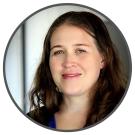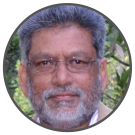This committee is comprised of educators, government agencies and researchers who are immersed in the field of air quality sensors. The committee will develop the technical program for the conference, chair sessions, and invite speakers. They can provide a unique view of the current discussions, what topics are in need of further exploration, and the studies that are important to world views.

Jan-Michael Archer
PhD Candidate, University of Maryland
Jan-Michael Archer is PhD student at CEEJH. He received his master’s degree in Interdisciplinary Ecology from the University of Florida where he studied human-wildlife conflicts and urban planning/green design. Jan has worked in public and non-profit sectors as an environmental educator and community outreach specialist; first for the U.S. Fish and Wildlife Service and later for Living Classrooms Foundation, Inc. Currently, Jan’s research focuses on developing community capacity for collecting, analyzing, and visualizing data. This has taken shape in the establishment of hyper-local air quality monitoring networks in several cities, community science training programs, and ongoing development and implementation of environmental justice mapping tools. Jan-Michael is also a 2020-2021 NSF UMD Global Stewards Fellow investigating environmental justice at the food-energy-water nexus.
Josh Apte
Assistant Professor, Energy, Civil Infrastructure and Climate, Environmental Engineering
Joshua Apte is an assistant professor jointly appointed in the Department of Civil and Environmental Engineering and the School of Public Health. He holds an ScB in Environmental Science from Brown University (2004) and MS and PhD degrees in Energy and Resources from UC Berkeley (2008, 2013). Prior to joining UC Berkeley, he was an Assistant Professor in the Department of Civil, Architectural and Environmental Engineering at the University of Texas at Austin from 2015-2020. (apte@berkeley.edu)
Colin Barrette
Air Quality Monitoring, United States Environmental Protection Agency

Karoline Barkjohn
Physical Scientist, Office of Research and Development, United States Environmental Protection Agency
Karoline Johnson Barkjohn is a Physical Scientist in EPA’s Office of Research and Development in Research Triangle Park North Carolina. Her research focuses on the evaluation and improvement of air sensor performance across the United States. In 2018 she received her Ph.D. in environmental engineering from Duke University. Her graduate work focused on evaluating air pollutant exposures and the impacts of indoor air filtration using air sensors in highly polluted urban areas globally. Karoline also holds master’s and bachelor’s degrees in environmental engineering from Georgia Tech and NC State University, respectively. (barkjohn.karoline@epa.gov)

Alena Bartonova
Research Director, EU Coordination and UAE, NILU - Norwegian Institute for Air Research
Dr Alena Bartonova, PhD serves as Research Director, coordinator for EU and UAE research and Manager, European Topic Center for Air, Transport, Noise and Industrial Pollution, currently posted at Kjeller, Norway. She has a MSc and a RNDr degree in Probability and Mathematical Statistics from the Faculty of Mathematics and Physics, Charles University, Prague, CZ, and PhD in Environmental Sciences from the Faculty of Science of the same University. Her research interests include the relationship between human health and well-being and the environment, integrated assessment, human exposure assessment for air pollution, and the role of science in society. Alena started at NILU as a post doc 1987-1990, when she was studying environmental epidemiology methods and the relationship between air pollution and material damage. She has also worked on evaluation and prediction of air quality on local and regional scale, and in national and international projects relating air quality and effects, often integrating knowledge from emissions to economic evaluation. She is active in international collaborative research in Europe, and has served in expert groups within the fifth and 7th Framework Programs for research of the EU, and as a member of SCHER. She has coordinated or co-coordinated several EU-co-funded projects, as well as other international collaborative research and assessment activities.

Aubrey Burgess
Love My Air Program Manager, City and County of Denver, Colorado
Aubrey Burgess is a Program Coordinator with Denver’s Department of Public Health and Environment. The Love My Air program pairs low-cost air quality sensors at schools with education and empowerment. With a focus on reducing health and economic impacts, the project has allowed Aubrey to dig into her passions for actively engaging communities in creative problem-solving and innovative project development. Aubrey has a Bachelor’s in Sustainability from Florida International University and a Master’s in Environmental Assessment from North Carolina State University. (AubreyAnne.Burgess@denvergov.org)

Andrea Clements
Research Physical Scientist, Office of Research and Development, United States Environmental Protection Agency
Andrea L Clements, Ph.D. is a research physical scientist with the U.S. Environmental Protection Agency’s Office of Research and Development, located in Research Triangle Park, North Carolina. Andrea leads evaluation efforts, field campaigns, and research projects aimed at testing the performance and usability of air quality sensors and summarizes best practices to guide others in the most effective use of sensors and the data they produce. She supports a number of Regions in conducting air sensor research and working to empower communities with access to technology and data. She holds a Ph.D. in Civil and Environmental Engineering from Rice University in Houston, Texas and also has degrees in Environmental Science and Engineering (M.S. Caltech), Chemical Engineering (B.S. Washington University in St. Louis), and Mathematics (B.A. Cornell College). More... (clements.andrea@epa.gov)

Alison Clune
Biologist, Office of Radiation and Indoor Air, United States Environmental Protection Agency
Alison is a Spanish-speaking public health professional with successful implementation of behavior change oriented programs among mothers and caretakers of children under 5 in early childhood health, including nutrition, early childhood stimulation, and prevention of common childhood illnesses, and experience in international maternal and child health and environmental health research.
Ashley Collier-Oxandale
South Coast Air Quality Management District
Dr. Ashley Collier-Oxandale is an Air Quality Specialist for Science & Technology Advancement at the South Coast Air Quality Management District. Her work includes the analysis of data from low-cost sensors and building tools and resources to support engagement and participation by the public in air quality research. Dr. Collier-Oxandale received her Bachelor of Science in Environmental Engineering and Doctor of Philosophy in Environmental Engineering degrees from the University of Colorado Boulder.

Suresh Dhaniyala
Bayard D. Clarkson Distinguished Professor, co-Director Center for Air Resources Engineering and Science, Clarkson University
The connection between Indoor air and long-term human health has been well established and accepted in the scientific community. The on-going pandemic has, however, brought to fore another dimension of indoor air - its role in disease transmission and public health. To counter indoor transmission of COVID-19, one of the important recommendations of agencies such as ASHRAE and CDC is to increase ventilation rates and decrease particle concentrations in indoor spaces. With the emergence of low-cost gas and particulate sensors, these indoor air properties can be studied and controlled with resolution not possible before. In this series of presentations by experts from academia and industry, we will explore how sensors can help improve our understanding of indoor air, ventilation, and health. (sdhaniya@clarkson.edu)
Rachelle Duvall
United States Environmental Protection Agency

Tim Dye
Principal, TD Environmental Services
Tim Dye has over 25 years of experience in environmental field monitoring, data management, and public communication. A visionary and entrepreneur, he has created air quality and meteorological applications both domestically and internationally. He is a widely recognized leader in air sensors and Internet of Things (IoT) technologies for environmental applications. While at Sonoma Technology, Tim developed innovative systems for air quality data management systems and forecasting programs for public outreach (www.AirNow.gov, www.StateAir.net, www.SmogCity2.org). Tim has the proven ability to transform traditional programs by using a mixture of technology, creativity, and leadership. (tim@tdenviro.com)

Jessa Ellenburg
Director of Educational Outreach, 2B Technologies
Jessa Ellenburg earned a degree in Civil Engineering at the University of Colorado and spent six years in bridge design. Thereafter she joined 2B Technologies in 2009 to follow her passion for educating youth about air pollution and climate change. She has assisted in the creation of a number of educational projects using air pollution monitors in schools and communities, including the Global Ozone (GO3) Project and AQTreks. (jessae@twobtech.com)

Ingrid George
Physical Scientist, US EPA, Office of Research and Development
Dr. Ingrid George received a PhD in atmospheric chemistry from the University of Toronto, where she studied heterogeneous chemistry of atmospheric oxidants with particles. She then conducted postdoctoral research in this area at the University of Leeds. Ingrid joined the EPA in January 2012 as an EPA federal post-doctoral researcher and was hired as a Physical Scientist in 2016. Her research at the US EPA in the Office of Research and Development involves the development of novel measurement approaches for speciated VOCs, including air toxics, ozone precursors, and odor compounds, for source emissions characterization and near source/fenceline ambient monitoring. (George.Ingrid@epa.gov)

Adam Giandomenico
CEO, Particles Plus
Adam Giandomenico has 30 years of experience managing particle measuring instrumentation companies focused on indoor air quality, ambient air monitoring and controlled environments. Adam has now founded or co-founded 24 startups, with 35 operations across 11 countries, and has been involved in the mechanical design of sensor components, vacuum pump technology, lenses, enclosures, and managed mechanical engineering for the various companies he has built. He is currently co-founder and CEO of Particles Plus, Inc., a particle counter instrumentation and vacuum pump technology company based in Boston, MA., whose products are in use by government organizations, hospitals, universities, and corporations around the world. (adam@particlesplus.com)

Rima Habre
Associate Professor, Environmental Health and Spatial Sciences, University of Southern California
Rima Habre, ScD is an Associate Professor of Environmental Health and Spatial Sciences at the University of Southern California. Her research aims to understand the effects of co-occurring environmental exposures, air pollution mixtures and social stressors on the health of vulnerable populations across the life course. (habre@usc.edu)

Arsineh Hecobian
Air Specialist, Health, Safety and Environment, Chevron
Dr. Arsineh Hecobian received her PhD in earth and atmospheric sciences from Georgia Institute of Technology, where she studied the evolution of secondary organic aerosols in fire plumes and develop a method for the measurement of brown carbon from filters. She was a postdoctoral scholar and research scientist at Colorado State University where she worked on quantifying the emission rates of methane and various Volatile Organic Carbons (VOCs) from oil and gas operation across U.S.A. She joined Chevron’s Air and GHG team I 2019 as an air specialist where she works on the evaluation of sensor technology for ambient monitoring of methane and VOCs. (arsineh.hecobian@chevron.com)

Jill Johnston
Assistant Professor & Director of Community Engagement, Division of Environmental Health, University of Southern California
Jill Johnston, PhD is an Assistant Professor and Director of Community Engagement in the Division of Environmental Health at University of Southern California. Dr. Johnston conducts community-driven epidemiology and exposure assessment to address inequitable exposures to harmful contaminants that affect health disparities, including in Latinx, African-American and Asian Pacific Islander communities and among the working poor. Her research focuses on addressing unequal exposures to harmful contaminants that affect the health of working poor and communities of color. She has two decades of experience inside and outside of academia in community organizing, popular education pedagogy, nurturing diverse partnership and translating EH research in environmental justice settings. Previously she worked as a community organizer on issues of environmental and economic justice in South Texas. Dr. Johnston received her PhD in environmental sciences and engineering from the University of North Carolina at Chapel Hill and completed a postdoctoral fellowship in environmental epidemiology, where she studied hazardous waste sites and industrial animal production. (jillj@usc.edu)

Ajith Kaduwela
Senior Staff Scientist, California Air Resources Board
Ajith Kaduwela is a Professional Research Scientist at the Air Quality Research Center at the University of California at Davis. He is an External Science Advisor for the Air Quality Club at Albany High School. (ajith.kaduwela@arb.ca.gov)
Additional Researchers:
- Tara Lee, Senior, Albany High School
- Minju O'Rouke, Senior, Albany High School
- Sean Morris, AP Computer Science Teacher & Faculty Advisor for Air Quality Club, Albany High School

Amanda Kaufman
Physical Scientist, Office of Air Quality Planning and Standards, United States Environmental Protection Agency
Amanda supports the US EPA through planning for air quality sensor networks focusing on community and tribal engagement. Through her extended participation in ASIC she has elevated the voices of community groups and tribal members to ensure their stories and voices are heard during the development of the program.

Melissa Lunden
Chief Scientist, Aclima
Melissa is the Chief Scientist at Aclima which has introduced an entirely new way to measure hyperlocal air pollution and greenhouse gases at scale, at the resolution needed to target emissions reductions and protect human health. Melissa’s career has focused on the transport and fate of pollutants in the environment. She received her PhD at the California Institute of Technology with an emphasis on aerosol science. As a scientist at the Lawrence Berkeley National Laboratory, she directed atmospheric and environmental processes research. Melissa has always been interested in how different environments influence exposure to highly dynamic pollutants. This variability underscores the need for ubiquitous hyperlocal environmental monitoring that she and the team at Aclima have pioneered. (melissa.lunden@aclima.io)

Ethan McMahon
Senior Innovation Advisor, US EPA
Ethan McMahon is a Senior Innovation Advisor at the U.S. Environmental Protection Agency who helps people leverage the Internet of Things, citizen science and big data analytics. He launched EPA’s Smart City Air Challenge, a contest for communities to install hundreds of air quality sensors and make the data public. Two communities implemented projects and can shared their data management practices. Ethan also managed NASA’s International Space Apps Challenge in 2014, a global hackathon in 95 locations around the world that yielded over 660 projects. In addition, he managed EPA’s Apps for the Environment Challenge in 2011, which encouraged developers to create mobile apps using EPA’s open data. He is a member of the Group on Earth Observations’ Data Management Working Group and is the co-lead of EPA’s Citizen Science Data Management Strategy (in process). (McMahon.Ethan@epa.gov)

Michael Ogletree
Air Quality Program Manager, City & County of Denver, Dept. of Public Health & Environment
As the Air Quality Program manager in the Denver Department of Public Health and Environment, Michael is responsible for the design, implementation, and execution of the Love My Air Denver program. This innovative program involves deployment of low-cost air sensors at schools along with real time data dashboards, education, and programming to reduce the long-term health and economic impacts from exposure to poor air quality. The Love My Air Denver program is taking a collaborative approach closely working with school communities and other stakeholder groups to deliver an impactful program for Denver residents. Innovation on this project has made Michael a national leader in city led effort on low-cost sensor use and application. He regularly shares his expertise on this subject as well as larger programmatic replication with other municipalities. He hopes to continue to aid other cities and agencies in replicating the Love My Air Denver program to meet their air quality challenges. (Michael.Ogletree@denvergov.org)
Robert Pinder
Physical Scientist, United States Environmental Protection Agency

Vasileios Papapostolou
Program Supervisor, South Coast Air Quality Management District
Dr. Vasileios Papapostolou is the Program Supervisor for the AQ-SPEC of Science & Technology Advancement at the South Coast Air Quality Management District. His primary responsibilities include the overall oversight and guidance for the South Coast AQMD air quality sensor related activities. Dr. Papapostolou received his Bachelor of Science degree in Chemical Engineering from the National Technical University of Athens in Greece, his Master of Science in Exposure Assessment and Doctor of Science in Environmental Health degrees from the Harvard T.H. Chan School of Public Health. (vpapapostolou@aqmd.gov)
David Ridley
Air Pollution Specialist, California Air Resources Board
David Ridley works in the Monitoring & Laboratory Division of the California Air Resources Board. He supports the Advance Monitoring Techniques Section of the Community Air monitoring Branch.

Gwendylon Smith
Executive Director and Founder, Community Health Aligning Revitalization Resilience & Sustainability (CHARRS)
Gwen is the Executive Director of Collier Heights Assoc. for Revitalization, Resilience, and Sustainability (CHARRS) and founded it in 2016. CHARRS addresses Environmental Justice issues, health inequities, and Social Determinants Of Health that impede equitable access to health, education, and economic success in underserved communities. She is also an Interdisciplinary Research Leader Fellow at the Robert Wood Johnson Foundation. Gwen is adept at bringing diverse people together to achieve shared goals, producing tangible results in diverse communities and has a passion for intersectional environmentalism.

Susan Stone
Senior Environmental Health Scientist, United States Environmental Protection Agency
Susan Lyon Stone is a Senior Environmental Health Scientist with EPA’s Office of Air Quality Planning and Standards in the Ambient Standards Group, which reviews the national ambient air quality standards. She was team leader for the 2015 review of the ozone standards, and has also worked on the reviews of the standards for particulate matter and sulfur dioxide. She is the Air Quality Index (AQI) team leader, has coauthored many of EPA’s public information documents about the AQI, the health effects of criteria pollutants, and she has given presentations across the U.S. and internationally on these subjects. Ms. Stone is the project lead for multi-agency team revising the document Wildfire Smoke: A Guide for Public Health Officials, is a contributor to EPA wildfire health research, and is the co-lead for a study (National-Scale Activity Survey) that evaluated the effectiveness of AQI advisories in changing public behavior. She has an M.S. from the School of Public Health at the University of North Carolina at Chapel Hill.

R. Subramanian
Research Scientist, QEERI
Dr R Subramanian is a Senior Scientist at the Environment and Sustainability Center (ESC) of the Qatar Environment & Energy Research Institute (QEERI), where he leads QEERI’s research on sensors for air quality and climate. He is also a research fellow at the Kigali Collaborative Research Centre (Kigali, Rwanda), a visiting researcher at OSU-Efluve/CNRS (Creteil, France), and an adjunct faculty member in the Department of Mechanical Engineering at Carnegie Mellon University (Pittsburgh, PA, USA).
Subramanian’s research career includes chemical characterization and source apportionment of ambient organic aerosol and PM2.5, single-particle measurements of black carbon and BC mixing state, emissions characterization for cook stoves and vehicles, and characterization of methane emissions from natural gas facilities. Recent accomplishments include leading the development of the Real-time Affordable Multi-Pollutant (RAMP) monitor, co-leading the deployment of a 50-RAMP network in and around Pittsburgh, PA, and establishing the Africa qualité de l’air (AfriqAir) monitoring network, a collaborative international effort using reference-grade and lower-cost monitors in many cities across Sub-Saharan Africa.

Martine Van Poppel
VITO - Flemish Institute for Technological Research NV
As Senior Research Scientist of the team Air Quality Measurements of the unit Health at VITO, she leads projects related to urban air quality, combustion-related aerosols, mobile and personal exposure monitoring and sensor measurements and testing. After her PhD in analytical chemistry, Martine Van Poppel joined VITO in 1999, in the former Vehicle Techniques team. Twenty years later, air quality is still up Martine’s alley, while the topic is hotter than ever. “Prominently more attention has been paid to air quality in recent years. Over the past twenty years I have seen how measurement parameters and techniques have significantly evolved, which makes this topic more relevant than ever and also keeps it extremely interesting for me as a researcher”, says Martine.

Heidi Vreeland
Research PI, United States Environmental Protection Agency
Heidi Vreeland joined the Office of Research and Development at the U.S. Environmental Protection Agency (EPA) in 2021 to study mobile source emissions. During her postdoctoral research at EPA, she worked on multiple projects that examined how indoor air spaces are impacted by wildfire smoke. Heidi holds a Ph.D. in Environmental Engineering from Duke University, and M.S. from the Georgia Institute of Technology. (Vreeland.Heidi@epa.gov)

Anthony Wexler
Director, Air Quality Research Center, University of California, Davis
My research focuses on understanding the atmospheric processes that transport and transform particulate pollutants in the atmosphere and in lungs. Experimental and modeling approaches are employed. Focus is on urban and regional smog and global climate change. Experimental work includes developing new instruments and deploying them in the field. Modeling work includes simulation of particle dynamics in the urban and regional atmosphere related, vehicle emissions, and deposition in human airways. (aswexler@ucdavis.edu)
Thank you to our past Committee Members
Mohammed Ayoub
Senior Research Director and ESC Founding Director
Qatar Environment and Energy Research Institute
Kristen Benedict
Scientist, Office of Air Quality Planning and Standards
United States Environmental Protection Agency
Randy Chapman
United States Environmental Protection Agency
Raynee Chiang
Director of Meteorology and Measurement
Bay Area Air Quality Management District
Calvin Cupini
Program Manager, Citizen Science, Air Keepers
Clean Air Carolina
Trisha Curran
United States Environmental Protection Agency
Catherine Dunwoody
Chief, Monitoring and Laboratory Division
California Air Resources Board
Adrian Dybwad
Founder
Purple Air
Paul English
Branch Scientific Adviser, Environmental Health Investigations Branch
California Department of Public Health
Ron Evans
United States Environmental Protection Agency
Jennifer Gabrys
Professor, Department of Sociology
University of Cambridge
Walter Ham
Air Resources Supervisor I
California Air Resources Board
Christa Hassenkopf
CEO/co-founder
Open AQ
Jingkun Jiang
Professor; Deputy Director, State Key Joint Laboratory of Environment Simulation and Pollution Control
Tsinghua University
Kurt Kaperos
Volunteer
Ali Kamal
United States Environmental Protection Agency
Vasu Kilaru
Research Physical Scientist, Office of Research and Development
United States Environmental Protection Agency
Vasileios Papapostolou
Program Supervisor, AQ-SPEC of Science & Technology Advancement
South Coast Air Quality Management District
Edmund Seto
Associate Professor
Environmental & Occupational Health Sciences, University of Washington
Eric Stevenson
Director of Meteorology and Measurement
Bay Area Air Quality Management District
Nealson Watkins
United States Environmental Protection Agency
John White
United States Environmental Protection Agency
John Volkens
Faculty, Global Health & Health Disparities
Colorado School of Public Health at Colorado State University
